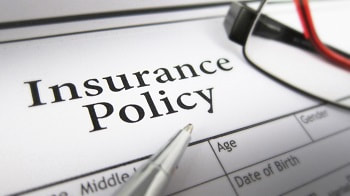Insurance Brokers Explained
Updated 20 February 2020
Summary of Insurance Brokers
Our guide tells you what you need to know about insurance brokers. We outline:
- Insurance brokers work with insurance companies to provide appropriate cover specific for your personal situation and needs. Unlike an insurance company, they take the time to get to know you and properly consider what insurance you need. As their client, you can ask questions.
- If you have health issues or a unique family situation, insurance brokers can help to find exactly the right policy for your needs.
- If you run a business, a business insurance broker can help you assess your risks and find the most appropriate policies at the best price.
- There's no direct cost by dealing with an insurance broker - they get paid by the insurance company by way of a commission when they sell a policy. If you don't buy a policy, you won't be charged by the insurance broker.
- If you need to make a claim, insurance brokers fight in your corner and deal with the insurance company directly. This can save a lot of hassle and time during what's likely to already be a stressful time.
- The most important thing is to find an insurance broker you're comfortable with.
Our guide tells you what you need to know about insurance brokers. We outline:
What is an insurance broker, and what they do?
An insurance broker is a person who sells an insurance policy to a customer on behalf of an insurance company. An insurance broker works one-on-one with you to find out your specific insurance needs. For example, if you have two young children and are looking for life insurance to protect their futures, an insurance broker will ask you the amount of cover you want and other questions to get a better understanding of your needs. The insurance broker then offers a range of policies from different insurers which are matched to your precise needs.
An insurance broker brings a lot of expertise and insights into insurance, and offers are more personal experience compared to dealing with an insurance company directly. Insurance brokers must act with your best interests and have a duty of care in how they behave - this means they must be able to explain and justify any insurance policy recommendations they make.
If you need to make a claim, you won't deal with the insurance company your policy is with. Instead, and quite helpfully, your Insurance broker will make the claim on your behalf. This can save considerable time and eliminate the hassle in what is likely to be a difficult time for you and/or your family.
An insurance broker brings a lot of expertise and insights into insurance, and offers are more personal experience compared to dealing with an insurance company directly. Insurance brokers must act with your best interests and have a duty of care in how they behave - this means they must be able to explain and justify any insurance policy recommendations they make.
If you need to make a claim, you won't deal with the insurance company your policy is with. Instead, and quite helpfully, your Insurance broker will make the claim on your behalf. This can save considerable time and eliminate the hassle in what is likely to be a difficult time for you and/or your family.
Who uses an insurance broker?
Insurance brokers work with a broad range of clients, but most tend to be over the age of thirty when people look at protecting their families by taking out life insurance and related policies. Insurance brokers can also be introduced through mortgage brokers when purchasing a home.
Why use an insurance broker?
Insurance can be complicated and having someone you can meet with can make things much easier. If you want to buy insurance but are not sure where to start, and/or are insuring for something unusual, an insurance broker is a great place to start. They’re experts in the insurance market and can usually find you excellent cover at a price that beats going directly to an insurance broker. Best of all, when it's time to claim
Disclaimer: MoneyHub believes that insurers brokers are, in most cases, a good place to start for the following products:
Comparing is a good starting point
Comparing prices for other general insurance using our guides is a great place to start to find the best policies. By doing so, you can most likely save money when looking for cover. Our price comparison guides cover:
Disclaimer: MoneyHub believes that insurers brokers are, in most cases, a good place to start for the following products:
- Life insurance (our guide explains more, and has sample policy prices)
- Mortgage protection (our guide explains more, and has sample policy prices)
- Income protection (our guide explains more, and has sample policy prices)
- Disability and trauma
Comparing is a good starting point
Comparing prices for other general insurance using our guides is a great place to start to find the best policies. By doing so, you can most likely save money when looking for cover. Our price comparison guides cover:
What are the advantages and disadvantages of using an insurance broker?
Advantages
Disadvantages
- Getting expert insurance guidance does not cost you more: Insurance brokers are paid a commission by the insurance provider for selling their products. You won't pay for their time, and if you don't go ahead, there's no cost either.
- Specialist expertise: Insurance brokers sell insurance all day long, and bring specialist expertise no matter what your needs are. This is important when you're looking, for example, for life or income protection insurance and have a pre-existing health issue; brokers know which policies will be most suitable.
- Awareness of options: If you go directly to an insurance company, in most instances, they won't know specifically what you need. An insurance broker will sit down with you, ask questions and listen to your needs, and explain the types of cover available. Their process is to get you the 'right' insurance by covering you for your needs. Insurance brokers will be able to let you know if any existing insurance covers you to avoid overlap (and overpaying).
- Price flexibility: Insurers don't usually drop their prices if you go to them directly. However, insurance brokers are more flexible on price and can, in many instances, negotiate on policy costs.
- Tailored policies for income protection and critical illness protection: An insurance company will sell one-size-fits-all products, which might not be suitable for your needs. An insurance broker matches your situation with specific policies to ensure a 'best fit'.
- Claims are taken care of: This is one of the biggest benefits of using an insurance broker in the first place. If you do need to claim on your policy, you're likely to be going through a lot of stress without dealing with an insurance company on top of that. Your insurance broker will take the details and make a claim, and deal with any push back or issues. In essence, they fight in your corner and help you get the appropriate payout. If you buy insurance directly, you'll have to go back and forward with the insurance company directly, which can be daunting and cause a lot of hassle and worry.
Disadvantages
- Limitation of offers – not all brokers work with every insurance company, so your options may be limited unless you ask upfront about who is excluded.
Are all insurance brokers the same?
No - insurance brokers work around the country, either as part of a group (such as Mike Pero Mortgages, which also sells a range of insurance policies) or as stand-alone providers. Like any professional service, the exact service you will receive will depend on who your provider is. For this reason, we suggest using Google to search for well-reviewed insurance brokers.
How much does an insurance broker cost?
There are no upfront or service fees. Insurance brokers make their money from commissions paid to them by the insurers you buy a policy from. You won't necessarily pay more for your insurance either by using an insurance broker. To explain further, insurance brokers work the same as travel agents who earn commissions from airlines and hotels etc.
It is up to you to decide which policy and company you want to be insured with. Unlike the process of getting a mortgage, the insurer you select probably isn't as important as the bank you borrow from. Nonetheless, insurance brokers will be paid differently by each insurance company, so be sure you pick the right policy that meets all of your needs.
You won't know how much your insurance broker earns from your policy - New Zealand law does not require brokers to disclose commission payments.
It is up to you to decide which policy and company you want to be insured with. Unlike the process of getting a mortgage, the insurer you select probably isn't as important as the bank you borrow from. Nonetheless, insurance brokers will be paid differently by each insurance company, so be sure you pick the right policy that meets all of your needs.
You won't know how much your insurance broker earns from your policy - New Zealand law does not require brokers to disclose commission payments.
Is there anything I should be wary of?
- Insurance brokers are sell policies from every insurance company. For this reason, it's important to ask upfront which insurers won't be included so it's clear what you are comparing.
How do you I find the right insurance broker for me?
- A simple Google will bring up a lot of insurance brokers awaiting your call. While insurance brokers are seen somewhat as a 'boomer business', they serve a purpose and offer face to face meetings when most insurance companies don't. Asking family and friends for their recommendation is also a good place to start.
- If you already have a mortgage broker, they may also offer insurance brokerage.
Know this: It's important to remember you don't need to go with the first insurance broker you talk to. There are insurance brokers all over New Zealand, and many have a number of online reviews so you can get an indication of their service.
What should I ask an insurance broker to make sure I get the best policy and service?
The expertise of an insurance broker can vary from one to another. To get the best results, ask two essential questions:
- How many insurers do you work with? The more insurers the broker has a relationship with, the higher the chances you'll get the most appropriate policy at the best price. A good answer is at least five insurers, but the more they cover, the better the options will be.
- What are your fees and commissions? You can ask that, even if they are not legally obliged to tell you. If they do, it will probably create trust and help you understand a little bit more about how insurance brokerage works.
Ready to purchase an insurance policy?
Consider an Insurance Broker - They Can Save Time and Money
We've shortlisted top-rated insurance brokers who go the distance for their clients in select cities around New Zealand:
- 10 Trusted Insurance Brokers in Auckland
- 5 Trusted Insurance Brokers in Hamilton
- 5 Trusted Insurance Brokers in Tauranga
- 5 Trusted Insurance Brokers in Napier and Hastings
- 5 Trusted Insurance Brokers in Wellington
- 5 Trusted Insurance Brokers in Christchurch




